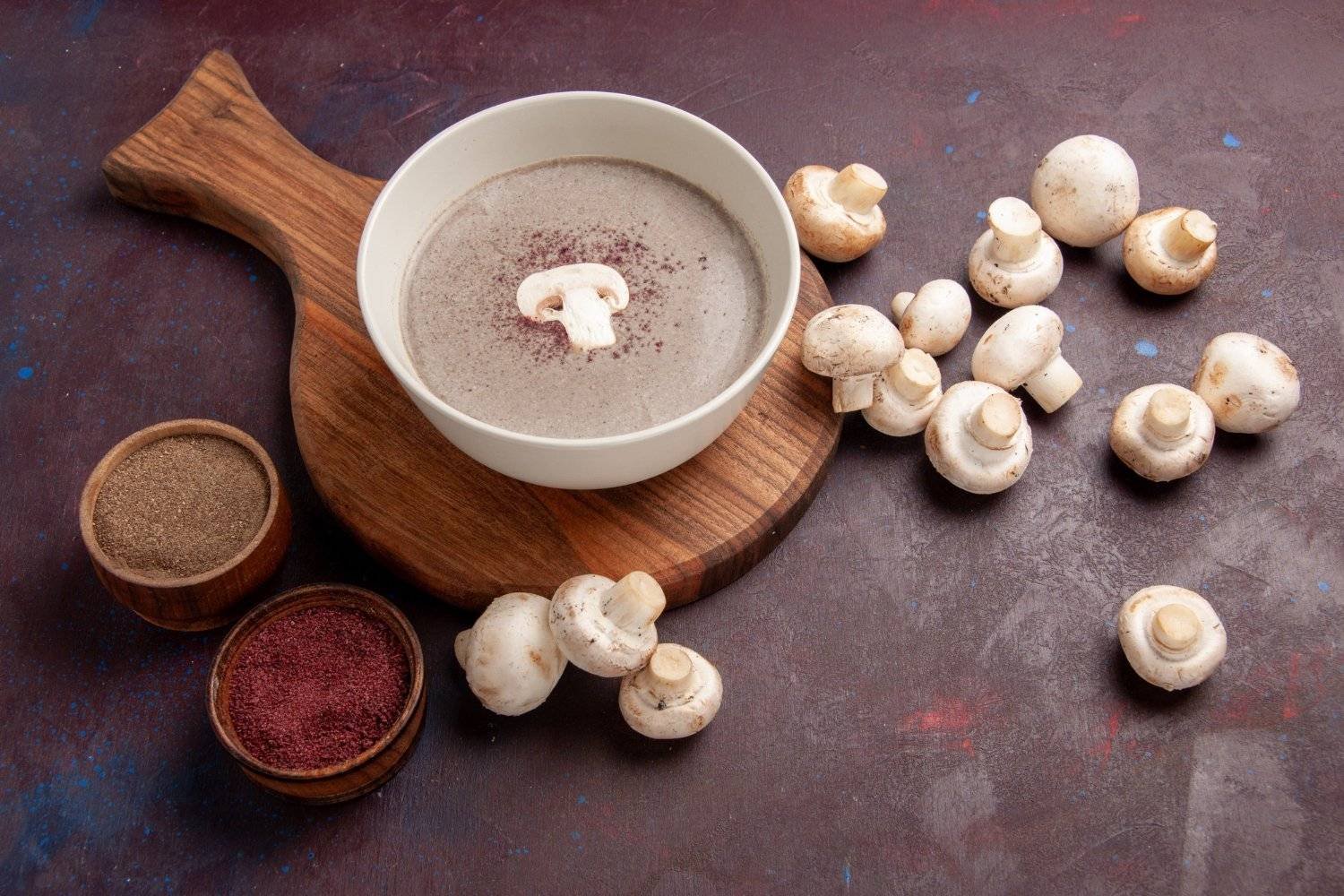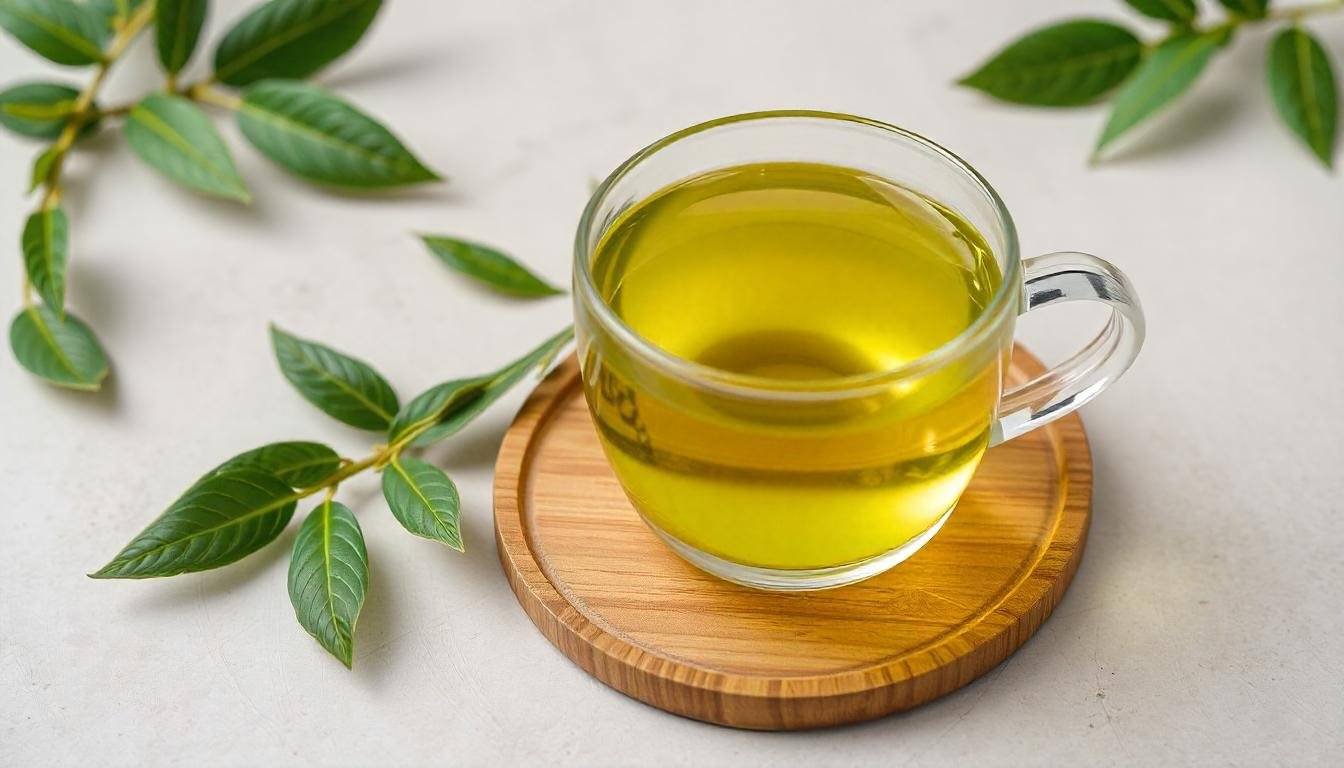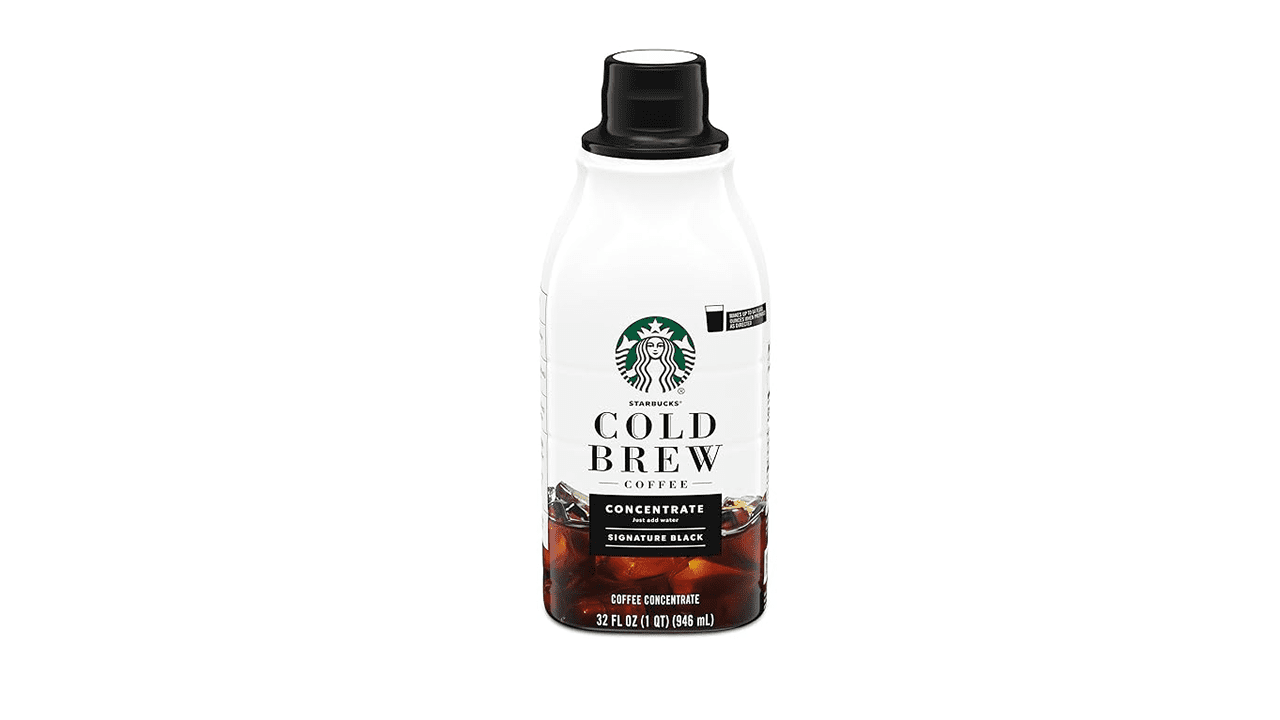Mushroom coffee. Who would have thought such a thing could taste good? But surprisingly, it’s not bad. Today, we’ll analyze the health claims around mushroom coffee, specifically RYZE Mushroom Coffee, and dive into the science behind its ingredients to see what benefits you can really expect.

What is Mushroom Coffee?
Mushroom Coffee is essentially a blend of instant coffee, powdered raw mushrooms, and a touch of spray-dried coconut oil as creamer. Each 6-gram scoop contains 2 grams of the mushroom blend, about 1 gram of coconut creamer, and 3 grams of instant coffee, contributing 48 milligrams of caffeine. While coffee itself brings health benefits thanks to caffeine and chlorogenic acid, our focus today is on the mushrooms.
The Mushrooms in RYZE Coffee
RYZE Mushroom Coffee includes six different types of mushrooms:
- Cordyceps
- Lion’s Mane
- Reishi
- Turkey Tail
- Shiitake
- King Trumpet
Let’s look at each of these to see if they live up to their health claims.
Cordyceps: The Stamina Booster?
Cordyceps typically grows on caterpillars in China’s high mountain regions. Commercial products, however, use artificially grown and fermented cordyceps mycelial cells instead of wild caterpillar-based sources. RYZE claims that cordyceps can boost stamina, a common belief.
However, research tells a different story. A small clinical study with cyclists showed that taking 3 grams of cordyceps daily for five weeks didn’t improve endurance or aerobic capacity. Another study found that 3 grams daily for 12 weeks had no impact on exercise performance in older adults. Even combination products featuring cordyceps haven’t shown any performance or stamina benefits beyond a placebo effect. So, the belief that cordyceps enhances stamina might not hold up under human testing.
Summary
Cordyceps, often claimed to boost stamina, shows no proven benefits in studies, with research revealing no improvement in endurance or exercise performance. The effects are likely placebo.
Lion’s Mane: The Focus Enhancer?
Lion’s Mane, also known as Hericium erinaceus, grows on hardwood trees. RYZE claims it’s great for focus. There’s some weak evidence suggesting it may help older individuals with mild cognitive issues. For instance, older patients with mild Alzheimer’s who took Lion’s Mane showed slight cognitive improvements, but these gains reversed after stopping treatment.
Yet, for healthy people? Research on young adults found that 10 grams daily of Lion’s Mane over four weeks didn’t improve cognitive markers during exercise fatigue. However, a study on people over 50 taking 3.2 grams daily for 12 weeks did show improvement. So, for healthy individuals or younger people, Lion’s Mane might not have much effect. Plus, Rye’s coffee wouldn’t provide the high doses used in these studies unless you’re drinking 10–20 cups a day, which would be unsafe due to caffeine.
Summary
Lion’s Mane may offer mild cognitive benefits for older adults with mild cognitive decline, but research shows little effect for healthy young people. High doses, like those used in studies, would require drinking excessive amounts of RYZE coffee, which could be unsafe due to caffeine.
Reishi: The Stress Reliever?
Reishi, or Ganoderma lucidum, has a long history in Asian traditional medicine. RYZE claims it’s good for stress relief, but there’s no direct evidence supporting stress reduction in humans. Instead, it’s a traditional belief, not strongly supported by modern clinical research.
Turkey Tail: The Gut Health Supporter?
Turkey Tail, or Coriolis versicolor, is a common fungus used in traditional Chinese medicine, often claimed to boost immunity and detoxify. RYZE suggests it’s beneficial for gut health, though research hasn’t specifically explored its effects on gut health in humans. While Turkey Tail has components like PSK and PSP used medicinally in Japan, these are highly refined compounds. Consuming Turkey Tail in raw form through coffee likely won’t provide these benefits.
Shiitake: The Immunity Booster?
Shiitake is a popular edible fungus, and RYZE claims it boosts immunity. This may relate to a compound called AHCC (active hexose-correlated compound), often derived from shiitake mushrooms. Research shows that AHCC might support the immune system; in one study, 3 grams daily helped clear HPV in some adult females. However, a different study on chronic hepatitis C patients found no benefit. Importantly, these studies used purified AHCC in high doses, not raw shiitake powder. So, sipping on RYZE coffee probably won’t deliver similar immune benefits.
King Trumpet: Anti-Inflammatory Benefits?
King Trumpet mushrooms are mainly known for culinary use. Though they contain intriguing compounds, no human trials have tested King Trumpet mushrooms for health benefits, including anti-inflammatory properties. RYZE coffee includes King Trumpet, but without any supporting research, it’s uncertain whether it offers meaningful health benefits.
So, Do Mushroom Coffee Benefits Live Up to the Hype?
While mushrooms in coffee sound promising, there’s limited human research confirming the marketed benefits of mushroom coffee. Even though medicinal mushrooms are fascinating to researchers, most lack solid human research, which may add to their “mystical” reputation.
In reality, if you’re drinking RYZE Mushroom Coffee, it’s likely for taste and texture more than proven health benefits. These mushrooms aren’t shown to significantly impact health when consumed in this form, so you probably won’t notice huge differences.
Final Thoughts
Maybe deep down you already knew this. Perhaps you’re holding onto hope that the unproven, theoretical benefits of powdered mushroom blends could somehow seep into your cells, gradually making you feel sharper or more energized. Or maybe, it’s just the coffee.
Grab your RYZE mushroom coffee on Amazon.
PHOTO: Amazon









